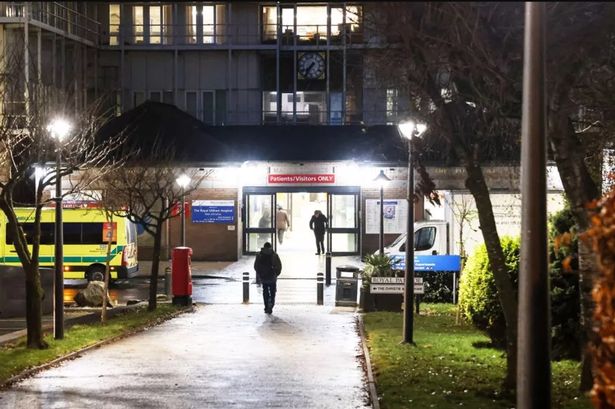The incident at the Royal Oldham Hospital, where a nurse in her 50s was critically injured after being stabbed by a disgruntled patient, underscores the escalating violence against healthcare workers and the urgent need for enhanced safety measures within hospital settings. This tragic event brings to light the immense pressure faced by NHS staff, particularly in under-resourced and overstretched environments. While the specific details surrounding this particular incident are still under investigation, it serves as a stark reminder of the vulnerability of healthcare professionals who dedicate their lives to caring for others, often putting their own safety at risk. The emotional and psychological toll on the victim, her colleagues, and the entire hospital community cannot be understated. Such acts of violence not only jeopardize the well-being of individual staff members but also erode the sense of security and trust within the healthcare system, potentially impacting patient care and staff morale.
The alleged perpetrator’s frustration over perceived wait times highlights a broader issue within the NHS: the increasing strain on resources and the subsequent impact on patient experience. Long wait times, often stemming from staff shortages, bed shortages, and increased demand, can lead to frustration and anxiety among patients. While this in no way justifies violence, it underscores the need for systemic improvements within the NHS to address the root causes of patient dissatisfaction. Increased funding, streamlined processes, and improved communication can play a crucial role in mitigating wait times and creating a more positive patient experience, thus potentially reducing the likelihood of such incidents. Addressing these underlying issues is not only essential for patient satisfaction but also for the safety and well-being of the healthcare professionals who bear the brunt of these systemic challenges.
This incident also raises critical questions about the security protocols within hospitals. Are existing measures adequate to protect staff from violent or aggressive individuals? Do hospitals have sufficient security personnel, and are they adequately trained to handle such situations? A thorough review of current security measures is imperative, potentially leading to the implementation of enhanced protocols, including increased security presence, improved staff training on de-escalation techniques, and perhaps even the introduction of metal detectors or other security technologies. Creating a safe working environment for healthcare professionals is paramount, and hospitals must invest in the necessary resources and training to ensure their staff’s protection.
The impact of this attack extends far beyond the immediate victim and her family. The entire hospital community, including doctors, nurses, support staff, and even other patients, will undoubtedly feel the repercussions. The emotional distress and anxiety caused by such an event can be profound, leading to decreased morale, increased stress levels, and potentially even impacting staff retention. Hospitals must provide comprehensive support services to their staff, including access to counselling, psychological support, and other resources to help them cope with the trauma and aftermath of such incidents. A culture of support and open communication is essential to fostering a sense of security and resilience within the hospital community.
Looking ahead, it is crucial to learn from this tragic incident and take proactive steps to prevent future occurrences. This requires a multi-faceted approach, addressing both the immediate security concerns within hospitals and the broader systemic issues contributing to patient frustration and potential aggression. Investing in violence prevention training for healthcare staff can equip them with the skills to identify and de-escalate potentially volatile situations. Improving communication with patients about wait times and treatment plans can help manage expectations and reduce anxiety. Furthermore, addressing the underlying resource constraints within the NHS is paramount to reducing wait times and improving the overall patient experience, thereby potentially mitigating the risk of future incidents.
Ultimately, creating a safe and supportive environment for healthcare professionals is not just a matter of implementing security measures but also about fostering a culture of respect and appreciation for the vital role they play in society. These individuals dedicate their lives to caring for others, and they deserve to feel safe and valued in their workplace. The incident at Royal Oldham Hospital serves as a stark reminder of the risks they face and the urgent need for proactive measures to protect them and ensure the continued delivery of high-quality healthcare. This includes investing in robust security protocols, providing comprehensive support services, and addressing the systemic issues that contribute to patient frustration and potential aggression. Only through a concerted effort can we create a healthcare system that is both safe for its staff and effective in serving its patients.














